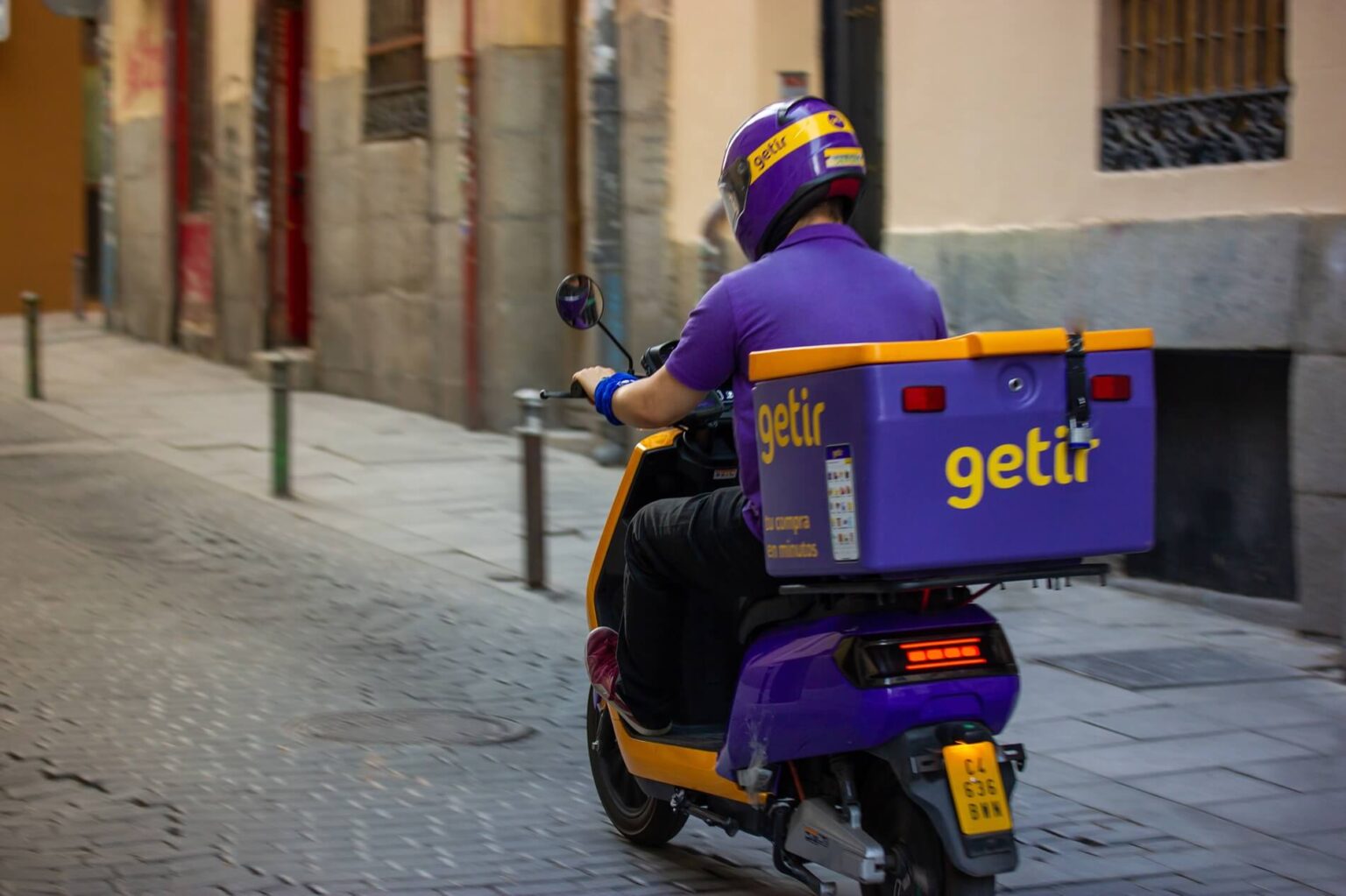The name “Getir” might not be familiar to most UK shoppers. And that’s little surprise, given the company only operated for around two-and-a-half years before shutting down its UK operations.
The Turkish ecommerce startup – which specialises in fast grocery delivery services – announced in April 2024 that it will be exiting the UK, US, Netherlands and Germany. The company stated that it wanted to focus on its home market, where it could better leverage its resources and ensure operational profitability.
It was a speedy exit for the quick commerce brand, and one worth delving into. Below, we’ll explain the main factors that led to Getir’s decision to call it quits.
Overexpansion
Getir expanded rapidly during the COVID-19 pandemic, having launched in the UK and other countries in 2021. A year later, it acquired rival rapid delivery firm Gorillas for £1.2 billion. Together, the companies launched Europe’s biggest store network for fast grocery delivery for customers in the UK, Germany and the Netherlands.
The company initially saw success with its rapid growth, reaching a valuation of nearly $12 billion (£9 billion) in early 2022. However, as lockdown restrictions began to ease and more competitors emerged, Getir soon started facing increased pressure on its market share.
Online retail expert Martin Newman told the Grocery Gazette that excessive expansion was a poor decision on the company’s part.
He said: “They’d have been better to double down in one or two markets initially, get the model right and grow from there.”
Waning demand
The lockdown period in the UK proved to be a pivotal period for Getir and other online grocery businesses alike. With supermarkets operating under strict restrictions, many consumers turned to online shopping for their grocery needs.
Before the pandemic, only 10% of grocery shopping was done online. This later increased to 16% during the first few months of lockdown, with major supermarkets having to ramp up their delivery services. For example, supermarket giant Tesco doubled its number of delivery slots, including its click-and-collect services to 1.2 million. Sainsbury’s also increased its number of slots by 75%.
However, demand for online grocery services started to slow down after lockdown restrictions eased and more people returned to physical stores.
It was reported that online grocery penetration peaked at 13.4% in 2021, but the following year saw market growth decline by 12%. A study by the Statista Research Department also suggested that online grocery shopping was becoming unfavourable to consumers because of too many substituted items (with 42.5% of shoppers reporting this), while over a third (33.7%) said they weren’t able to find a suitable delivery slot.
“The rapid delivery space has also been significantly affected by the cost-of-living crisis and a reduction in consumer spending,” Newman added. “Why would you pay extra for rapid home delivery if you don’t need to? This obvious drop off in demand in turn has led to private equity and venture capital funding drying up.”
That being said, things have started to pick up again, as demand for online grocery shopping is now expected to grow by 3.1% in 2024.
Fierce competition
While Getir weren’t the only online grocery business struggling post-pandemic, major competitors, such as Deliveroo and UberEats, were still able to perform well. For example, Deliveroo’s revenue reached an all-time high of £2.03 billion in 2023, a 2.8% increase from the previous year. UberEats generated £700 million in the same year.
These companies already had strong footholds in the broader delivery market – not only offering groceries but also restaurant deliveries, convenience items and other services. This gave them a more diversified and resilient business model.
Supermarkets have also jumped on the rapid delivery service bandwagon, including Tesco’s Whoosh, Sainsbury’s Chop Chop and Ocado’s Zoom.
Smaller companies were also entering the online grocery and delivery space, such as DoorDash, GoPuff and Zapp. Price wars became rife as a result, leading to increased competition and pressure on profit margins. Getir attempted to compete by discounting some products by around 45% in 2023 to attract customers struggling with inflation and the cost of living crisis.
High operational costs
It was reported that Getir lost £168 million in 2022, which was 45% more than the previous year. Its cost of sales was also at £120.3 million, which unfortunately outran its revenue growth.
Other on-demand commerce startups were also struggling, with Zapp reporting a loss of £92.5 million the same year, while GoPuff lost £93.8 million.
To make matters worse, its valuation nosedived from $11.8 billion (£9.68 billion) to $2.5 billion (£2.05 billion) in 2023, even after securing 500 million (£410 million) in a funding round.
Leadership and management issues
Behind the scenes, there were notable tensions between Getir’s founder, led by CEO Nazim Salur and its foreign investors. There were disagreements over business strategies, such as pricing and product offerings.
For example, investors argued that the company selling a banana for as little as 9 cents during its Black Friday deal conflicted with its premium brand image, while others warned that these decisions would hurt profitability.
Additionally, Getir’s acquisition of Gorillas added more complications to its operations. Integrating Grollas’ technology, warehouses and staff into Getir’s system created significant operational challenges and increased costs.
This move also led to the departure of several key executives, including the Gorillas COO and CFO. More turnovers later ensued, most notably the departure of Chirs Chayaa, who led the company’s UK operations, amid a round of mass redundancies which saw around 300 staff laid off.




